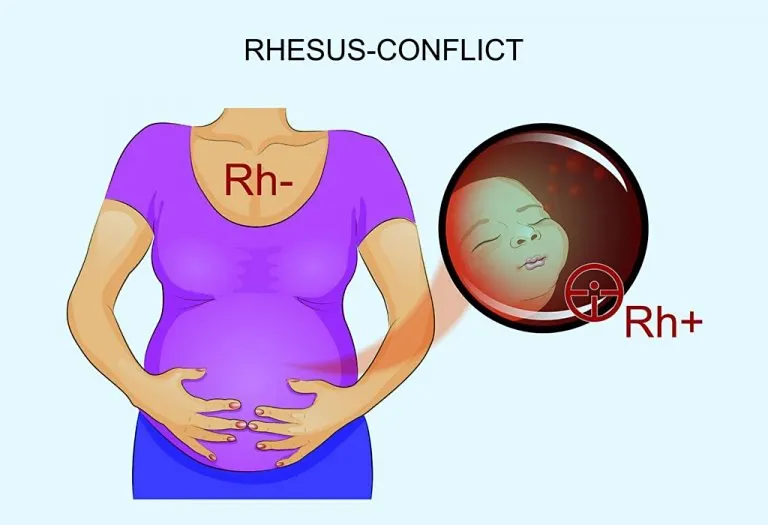Fluoride Exposure in Pregnancy: Safe Levels, Risks & What Evidence Shows
- What Is Fluoride and What Does it Do?
- What Are Safe Levels of Fluoride for Pregnant Women?
- Is Fluoride Treatment Safe During Pregnancy?
- Can Higher Levels of Fluoride in Pregnancy Affect Your Baby’s Brain?
- FAQs
Pregnancy, as we may be well aware, is one of the most delicate and overwhelming phases of a woman’s life. The body undergoes many transformations, and susceptibility levels vary greatly. Therefore, taking special care of your consumption, direct and indirect, becomes crucial. While it is routine to use fluoride toothpaste in the morning when brushing our teeth, there are some concerns about the relationship between fluoride and pregnancy. However, prenatal exposure to fluoride beyond permissible levels may not be advisable, according to recent research at the University of Toronto. To understand more about whether the use of fluoride during pregnancy is safe, or what levels can be considered safe, let’s deep dive into the article.
What Is Fluoride and What Does it Do?
Precisely put, fluoride is a highly electronegative chemical element occurring in abundance in the universe. It ranks 24th in universal abundance and 13th in terrestrial abundance. Despite its abundance, it does not rank highly among beneficial elements for living orgasms. This naturally occurring mineral found in several water bodies and foods, strengthens teeth and reduces the chances of cavities. Finding common use in the process of refrigeration and other manufacturing processes, fluoride comes closest to our daily lives through fluoride toothpaste and natural occurrences in water. Dental fluoride is widely recognised for protecting our tooth enamel from decay by hardening it and making it resistant to acid attacks (1).
What Are Safe Levels of Fluoride for Pregnant Women?
Previously believed to be a protective agent for yet to erupt tooth enamel in children and foetuses, studies now indicate that exposure to fluoride while the baby still lies in the mother’s womb renders more harm than protection. Studies in Canada and China discuss how naturally occurring fluoride in water, after intake, passes through the placenta and into the child’s brain. Recommendations from American organisations over the minimum dose of adequate ingested intake of fluoride is determined to be 3mg/day for women, including during pregnancy (2) (3).
Is Fluoride Treatment Safe During Pregnancy?
To answer this question, we must dig deeper. The general perception of good health suggests that regular exposure to fluoride helps keep teeth, bones, and the brain healthy. However, an excess of anything eventually proves to be harmful. As mentioned above, pregnancy needs to be viewed with special attention. While fluoride toothpaste and water are good during pregnancy, monitoring the intake is a must.
The fact that the human placenta doesn’t prevent the flow of fluoride from the pregnant mother’s bloodstream to her foetus is a worrying topic among researchers. Thus, fluoride ingestion during pregnancy can harm the foetus. This concludes that the fetal brain is highly vulnerable to fluoride poisoning (4).
Three studies conducted in China observed the impact of fluoride on the developing brain, and each had conclusive evidence of considerable neurological damage, such as neuronal degeneration and decreased levels of neurotransmitters like norepinephrine. As pointed out by Yu in a 1996 research report published in the Chinese Journal of Endemiology, “when norepinephrine levels drop the ability to maintain an appropriate state of activation in the central nervous system is weakened.” (5) Research involving animals treated with fluoride has also reported similar effects, including reduced levels of norepinephrine (6).
Excess intake of fluoride while pregnant in the first trimester of pregnancy may result in the severity of maternal anaemia and fetal complications, such as miscarriages, congenital malformations, intra-uterine deaths, and abortions (7).
Fluoride treatment in pregnancy, however, is not advisable for the sake of the mother’s and the baby’s health. It should be done after delivery (8).
Can Higher Levels of Fluoride in Pregnancy Affect Your Baby’s Brain?
As per a 2019 study published in JAMA Pediatrics, fluoride exposure during pregnancy was associated with lower IQ scores in children aged 3 to 4 years (9). Thus, women with high fluoride levels in their system during pregnancy are said to have their child’s IQ reduced by significant margins. The foetal nervous system is greatly impacted as neurotransmitters are hampered, which disrupts the production of norepinephrine. Norepinephrine is a chemical that allows the activation of the central nervous system. With a drop in norepinephrine levels in the foetal body, the central nervous system is weakened.
FAQs
1. Is it safe to use fluoride toothpaste during pregnancy?
Yes, brushing with fluoride toothpaste is considered safe in pregnancy. It helps prevent tooth decay and keeps your gums healthy, which is essential for both you and your baby.
2. Can drinking fluoridated water harm my baby?
Normal levels of fluoride in drinking water are generally safe. Excessive intake, however, may lead to dental fluorosis in children later. It’s best to check your local water supply and consult your doctor if you’re unsure.
3. Should pregnant women avoid fluoride treatments at the dentist?
Fluoride treatments given by a dentist are usually safe and help strengthen teeth. However, they are not recommended during pregnancy. If you have concerns, discuss with your dentist about the type and frequency of treatment.
4. How much fluoride is too much during pregnancy?
Most exposure from toothpaste, mouth rinses, or water is within safe limits. Overexposure typically happens only with supplements or very high natural fluoride levels in water, so monitoring intake is advisable.
Being cautious of one’s fluoride intake during pregnancy is recommended as it has a significant impact on the baby’s mental health. Avoiding excessive use of fluoride mouthwash during pregnancy and other similar products can prove to be beneficial for the mother and the child. If you have any concerns related to the use of fluoride for pregnancy, please consult your doctor.
Also Read:
Tooth Pain in Pregnancy
Can You Get a Root Canal While Pregnant?
What Are The Common Dental Issues in Pregnancy?
Home Remedies for Tooth Pain and Bleeding Gums in Pregnancy
Was This Article Helpful?
Parenting is a huge responsibility, for you as a caregiver, but also for us as a parenting content platform. We understand that and take our responsibility of creating credible content seriously. FirstCry Parenting articles are written and published only after extensive research using factually sound references to deliver quality content that is accurate, validated by experts, and completely reliable. To understand how we go about creating content that is credible, read our editorial policy here.



































